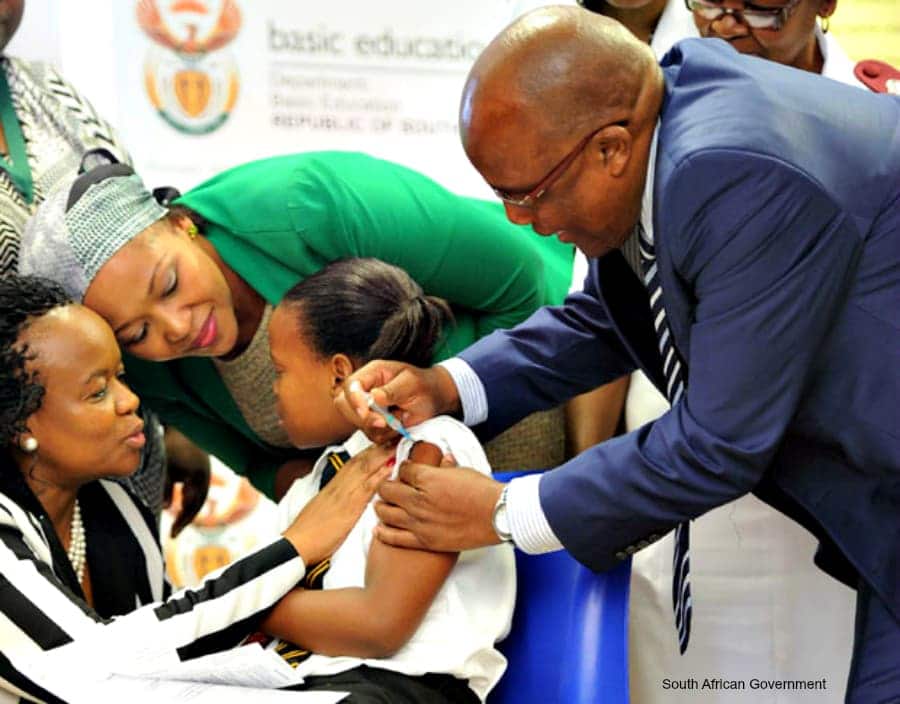Regiment for circumcised men
The regiment will be established this month (Dec) at the annual uMkhosi wokweshwama (first fruit ceremony) held at King Goodwill Zwelithini’s palace.
KwaZulu-Natal is leading the mass roll-out of male medical circumcision in the country after studies found that circumcision cut men’s risk of HIV by some 50 percent.
Traditional male circumcision was abolished in KwaZulu-Natal by King Shaka, apparently because he could not afford to let his warriors take time off for the ritual.
However, it was reintroduced in the province by King Zwelithini in April this year in a bid to prevent the spread of HIV in the country’s worst hit province.
The province has been circumcising boys from the age of 15 and men at health facilities as well as at special weekend camps run together with traditional leaders.
A recent reportback by provincial authorities to the King was told that 17,690 men had been circumcised between April and November.
However, provincial Premier Zweli Mkhize cautioned that ‘care must be taken to ensure that men and women understand that the procedure does not provide complete protection against HIV infection’.
‘Male circumcision must be considered as just one element of a comprehensive HIV prevention package that includes the correct and consistent use of male or female condoms, reductions in the number of sexual partners, delaying the onset of sexual relations and abstaining from penetrative sex,’ Mkhize told the reportback meeting.’¨’¨
Nationally, the health department has declared that medical male circumcision is part of its HIV prevention campaign and a wide variety of groups have been involved in promoting it.
Health Minister Dr Aaron Motsoaledi is very supportive of KwaZulu-Natal’s campaign and has called on other provinces to replicate it.
However, the mass male circumcision campaign has courted controversy by using a plastic device called the Tara Klamp in some circumcisions instead of the traditional forceps method. This has been heavily criticised by a number of doctors and the Treatment Action Campaign (TAC) for being more painful and increasing the risk of infection.
Men circumcised with the Tara Klamp are now routinely given antibiotics to prevent infection and the province has agreed to do a retrospective study on men circumcised with the clamp and with forceps to evaluate the methods.
Author

Kerry Cullinan is the Managing Editor at Health-e News Service. Follow her on Twitter @kerrycullinan11
Republish this article
This work is licensed under a Creative Commons Attribution-NoDerivatives 4.0 International License.
Unless otherwise noted, you can republish our articles for free under a Creative Commons license. Here’s what you need to know:
You have to credit Health-e News. In the byline, we prefer “Author Name, Publication.” At the top of the text of your story, include a line that reads: “This story was originally published by Health-e News.” You must link the word “Health-e News” to the original URL of the story.
You must include all of the links from our story, including our newsletter sign up link.
If you use canonical metadata, please use the Health-e News URL. For more information about canonical metadata, click here.
You can’t edit our material, except to reflect relative changes in time, location and editorial style. (For example, “yesterday” can be changed to “last week”)
You have no rights to sell, license, syndicate, or otherwise represent yourself as the authorized owner of our material to any third parties. This means that you cannot actively publish or submit our work for syndication to third party platforms or apps like Apple News or Google News. Health-e News understands that publishers cannot fully control when certain third parties automatically summarise or crawl content from publishers’ own sites.
You can’t republish our material wholesale, or automatically; you need to select stories to be republished individually.
If you share republished stories on social media, we’d appreciate being tagged in your posts. You can find us on Twitter @HealthENews, Instagram @healthenews, and Facebook Health-e News Service.
You can grab HTML code for our stories easily. Click on the Creative Commons logo on our stories. You’ll find it with the other share buttons.
If you have any other questions, contact info@health-e.org.za.
Regiment for circumcised men
by Kerry Cullinan, Health-e News
November 30, 2010



